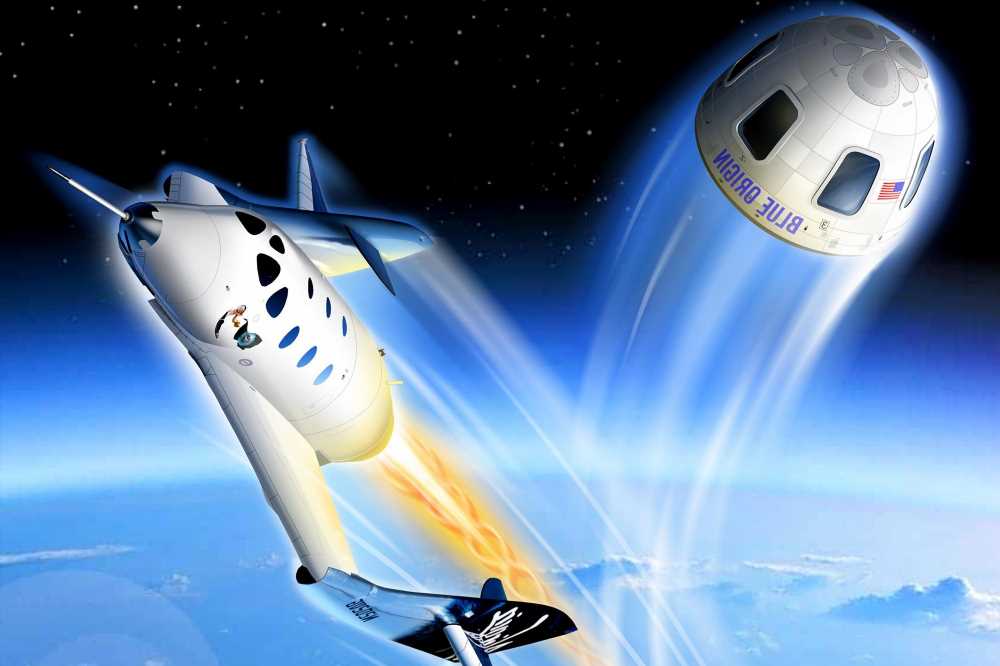More On:
space
Study nixes life in clouds of Venus, but maybe in this planet’s?
War in space will ‘look a lot like the Cold War’: report
Space race: Inside the ego-fueled competition of Bezos, Musk and Branson
US government releases long-awaited UFO report — here’s what it says
After Jeff Bezos announced that he would fly into suborbit with his brother, the winner of an auctioned seat and another crew member on July 20, Richard Branson countered with a flight plan of his own for early July.
Both billionaires are jumping into the space tourism market, having invested in the space industry for about two decades.
The auction winner on board Bezos’ New Shepard rocket paid an astronomical $28 million, outbidding nearly 7,600 participants from 159 countries.
Bezos’ company Blue Origin is also developing a heavy rocket to deliver people and payloads to space, as well as a lunar lander, called Blue Moon, to colonize the moon and move heavy industry there.
Branson, meanwhile, is going all in on space tourism. Based in New Mexico, his company Virgin Galactic has been in talks to open additional spaceports in Abu Dhabi, Italy, the United Kingdom, Australia and Sweden. Virgin Galactic plans on charging about $400,000 per ride. It’s already sold about 600 seats at a discounted price of about $225,000 each.
And then there’s Elon Musk. His SpaceX has sent two manned flights to the International Space Station. Not only is he flirting with space tourism on a larger scale, he also would like to colonize Mars.
Billionaires like Musk, Bezos and Branson are driving space tourism and the public’s understanding of space travel.
Still, experts are undecided as to whether this space race is merely an ego-fueled fad by the ultra-wealthy, or will have long-term liftoff.
BLUE ORIGIN
Named after the first American in space, New Shepard is a reusable suborbital rocket. It’s designed to take passengers on an 11-minute journey 62 miles up, the internationally recognized boundary of space. Bezos plans to take his brother, Mark, along with the winner of an auction, for its first human flight on July 20.
VIRGIN GALACTIC
Since forming in 2004, Virgin Galactic has been developing commercial spacecraft to provide suborbital spaceflights to tourists. After setbacks, which included a crash in 2014, its SpaceShipTwo climbed 51 miles in 2018. In 2019, it entered the thermosphere, traveling nearly 56 miles up. Branson says he wants to make the trip personally in early July.
SPACEX
So far, SpaceX founder Elon Musk has been watching from the sidelines with no current plans to launch civilians into space. He has, however, been busy with his Dragon rocket (with its payload capsule at right). Because of SpaceX’s partnership with NASA, it’s already flown three missions to the International Space Station, delivering supplies and astronauts. Musk’s plans for space tourism could begin later this year and include orbiting the Earth for five days, much longer than his minutemen rivals.
Share this article:
Source: Read Full Article





